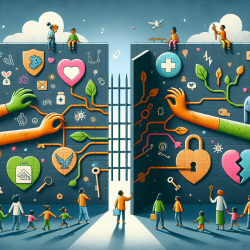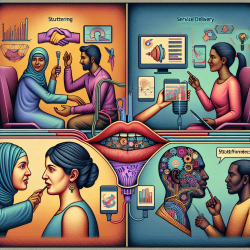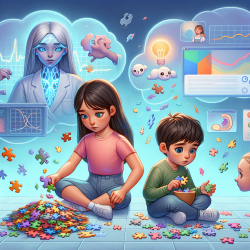Access to mental health care is crucial for children experiencing difficulties with emotions or behavior. Unfortunately, many families face significant challenges in obtaining the necessary mental health care for their children. Nearly 1 in 5 children have a mental, emotional, or behavioral disorder such as anxiety, depression, ADHD, autism spectrum disorder, disruptive behavior disorder, or Tourette syndrome. Early diagnosis and treatment can greatly benefit these children.However, only about 20% of children with these disorders receive care from a specialized mental health provider. Many children with other developmental and learning disorders also need mental health treatment but face similar barriers.Several factors contribute to the difficulty families experience in accessing mental health care:
- Lack of providers in their area
- Long travel distances or waiting lists
- High costs and lack of insurance coverage
- The time and effort required to secure care
What the CDC is Doing to Improve Access
The CDC is committed to helping children and families get the mental health care they need. Here are some of the ways they are working to improve access:
Connecting Families to Mental Health Care
One of the barriers to obtaining mental health care is the difficulty in connecting families to providers. The CDC is addressing this by:
- Promoting Behavioral Health Integration (BHI), which involves partnerships between primary medical care practices and mental health specialists.
- Reviewing policies that allow mental health care to be located in primary medical care and schools.
- Supporting telemedicine and school-based health centers in rural areas.
- Investigating the impact of social determinants of health on access to care.
Addressing Workforce Gaps
The CDC is also working to increase the capacity of healthcare providers to support children with mental health needs by:
- Funding the National Resource Center on ADHD and the Tourette Association of America.
- Partnering with the American Academy of Pediatrics to create educational modules for healthcare providers.
- Examining emergency department policies to care for children with mental health concerns.
- Mapping the availability of behavioral health service providers across the nation.
Investigating Funding Issues
Funding policies can significantly affect access to mental health care. The CDC is:
- Exploring how primary care can be used as a launching pad for Integrated Family Care.
- Collaborating with state Medicaid programs to reward quality and outcomes of child health care.
- Reviewing insurance-based policies that make mental health care equal to physical health care.
Understanding Social Determinants of Health
Social determinants of health, such as poverty and geographic location, can impact access to mental health care. The CDC is:
- Reviewing the health benefits of the Earned Income Tax Credit (EITC) and Supplemental Security Income (SSI) policies.
- Publishing reports on factors affecting childhood mental health in rural communities.
- Researching the impact of racism and adverse childhood experiences on mental health.
Identifying Children Who Need More Support
The CDC collects data to understand children's mental health and identify those who need more support. They have developed resources like the Milestone Tracker App to help parents track their child's development and find support if needed.
Supporting Well-being of Families
The CDC works to improve healthy child development and increase emotional, psychological, and social well-being. They support various initiatives, including:
- Social and Emotional Climate and Learning
- School Connectedness
- Mental and Emotional Health Modules for PreK–12
For more information, please follow this
link.










